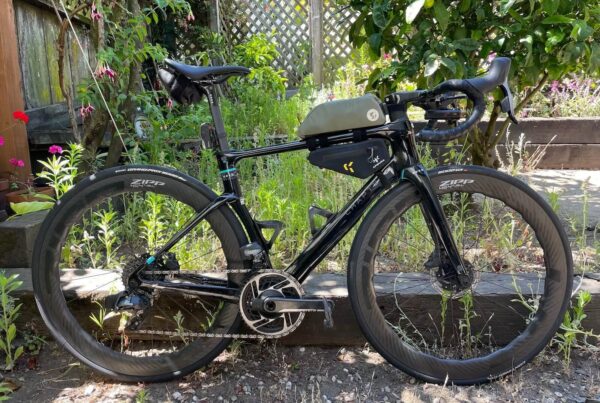Although traffic citations are not a part of my law practice, I’d like to explain some of the issues that face cyclists who have received traffic tickets. Let’s start where your encounter with the legal system begins, at the traffic stop. Here are three important things to know.
Yes, You Have to Stop
Whether you were breaking the law and got caught, or you were riding 100 percent legally, do not ignore a police officer who orders you to stop. One of my first Road Rights columns was about a cyclist who was arrested for failing to stop. He later triumphed in court, but not before he was tased, beaten, and cuffed before being hauled off to jail. Whether you think you deserve a ticket or not, when the cop says stop, pull over.
The Officer Is Not Your Friend
When a police officer asks you if you know why you were stopped, he is not making idle chatter. He is gathering evidence. Remember the Miranda warning? Anything you say can and will be used against you in a court of law (even if you are only getting a traffic ticket and the officer is not legally obligated to read you your rights). The police are not kidding about that. If an officer asks about information on your driver’s license, he may be looking for evidence that the information on your license is not up-to-date, which can garner you another ticket. The best response to these fishing expeditions is to answer the question without incriminating yourself. For example, “No, I don’t know why you stopped me.”
Speaking of your driver’s license, you don’t need one to ride your bike, but in at least one state (California) you will need to present a driver’s license or its “functional equivalent” (a state ID, a passport, or a military ID) if you are stopped for a violation and the officer asks you to produce ID. Failure to produce the requested ID can lead to a trip to jail. So can lying about your identity, and not just in California.
It Pays to Be Polite
There are several reasons for this. The officer may just be planning to talk to you about the violation he witnessed (or thinks he witnessed); you don’t want to convince him to write you a ticket instead by being difficult. But even if the officer is planning on writing you a ticket, you still don’t want to be a problematic traffic stop. For one thing, you might be able to change the officer’s mind and get a verbal warning instead of a ticket. How do you do that? By asking. Politely. But there is one drawback to asking for a warning instead of a ticket—you risk saying something incriminating about your actions that can be used against you later in court. So if you do ask for a warning, be careful about what you say, unless you want your words to come back and haunt you later.
Even if the officer writes you a ticket, you want to remain polite. Why? Because the officer writes a lot of traffic tickets, and you don’t want to be the one who stands out in his mind. You don’t want to give the officer incentive to show up in court and testify against you on your trial date, and you don’t want him to remember you and everything that you did and said when your case goes to trial. So if the officer decides to write you a ticket, politely accept your ticket. Do not argue with or insult the officer. Just take your ticket and ride away to fight this battle another day.
And that is the key here. You want to argue your case in the proper venue, which is the courtroom. The roadside is not a courtroom, and being combative with the officer will only anger the officer, which will make it worse for you when your case goes to trial.
This doesn’t mean that you can’t disagree with the officer. If the officer says you broke the law, and you believe the officer is wrong, you can disagree with the officer, but the key here is to disagree politely. If the officer is unsure of the law, and you are polite and sure of the law, you may be able to persuade the officer that you did not violate the law. But if the officer insists that you violated the law, despite your best efforts to convince him that you did not, or if he doesn’t want to listen—which he is not obligated to do—you may need to accept a ticket and make your legal arguments later in traffic court. In Part 2 of this article, I will talk about what happens next, after you’ve been ticketed.
Research and assistance by Rick Bernardi, J.D.
Connect with Bob on Facebook!
This article, Ticket-Talk ,Part 1, was oriinally publixhed on Bicycling on January 28, 2013.



